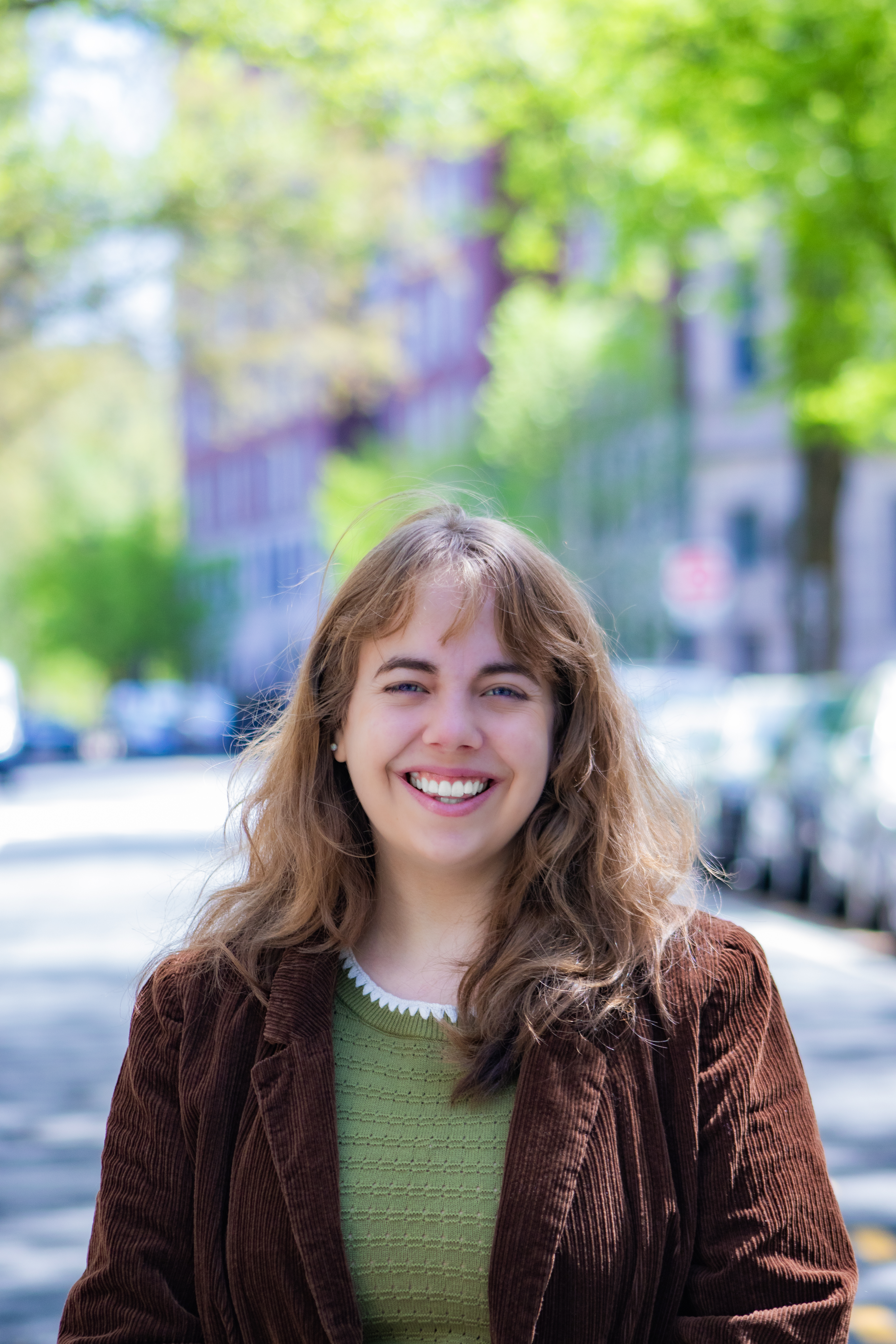
The Boston University Initiative on Cities (IOC) is happy to announce Corryn Barter (SPH ’25) has been selected as this year’s City of Boston Mayor’s Office of New Urban Mechanics (MONUM) Fellow. This fellow will have the opportunity to explore an interest in public service and civic innovation while positively impacting the surrounding community. The MONUM Fellow will collaborate with a larger cohort of MONUM summer fellows to develop and implement innovative, creative prototypes and experiments that benefit the residents of Boston. The fellow will also participate in professional development opportunities to gain a broad view of careers in city government.
The Office of New Urban Mechanics is Boston’s civic innovation team, responsible for promoting participatory urbanism, smarter city infrastructure, and innovative service delivery. They serve as the catalyst and clearinghouse for civic innovation projects involving the City of Boston and its partners, ranging from residents and community groups to universities, companies, and other government agencies.
Corryn Barter is a graduate student in the Community Health department with the School of Public Health, and is planning to graduate in December 2025. She completed a Bachelor’s degree in Political Science from George Washington University, where she first experienced the intersection between public service and population health. Corryn plans to use her Master of Public Health in Community Health Practice to develop and promote culturally relevant community-based health education. Outside of the classroom, you can find her riding Bluebikes, hanging with her cats, or going to see a movie!
We asked Corryn a few questions about her interests, motivations, and what she’s looking forward to as she embarks on her MONUM fellowship.
What made you want to apply for this internship/fellowship?
Three years ago, I moved to Boston to teach ninth-grade physics. I felt unqualified to teach a subject that I had struggled to understand in high school, but I persevered for the sake of my students. Ninth-grade physics is a challenging class, and many of my students lacked executive functional and foundational math skills necessary for success. As I learned physics alongside my students, I also learned the value of building a strong, tight-knit community. During my high school experience, students who struggled were often excluded, which further exacerbated student learning gaps. However, my students used a different method that acknowledged student community deficits and fostered a culture of student collaboration and interpersonal reflection. The transition to high school is a challenging year, but as Bostonians, my students’ reliance on community connections to achieve success had already been ingrained in their coping habits. Over the past three years, I followed my students’ model and worked to cultivate irreplaceable connections that nurture both myself and the people around me. Boston has taught me that cities can be built around care for their community. When looking for a fellowship, I wanted to combine my knowledge of community health and education while serving my students and the greater Boston community. The Mayor’s Office of New Urban Mechanics’ summer fellowship supports innovation and collaboration between local government and the goal of improving Boston for its residents and future generations. This role served as a unique opportunity to make an impact at the intersection of my academic interests.
Tell us about your interest in cities.
I’m passionate about affordable housing and student success in public schools. As an educator, I helped support students and families through homelessness, relocation, and financial hardship, but systemic issues prevent teachers from ensuring all students have a safe home. Boston is just one of the many cities struggling to manage the growing housing crisis. My experience working with students and their families motivated my decision to enroll in the Master’s of Public Health program. My public health degree in community health practice enables me to combine my interests in education and public health, addressing the root of systemic issues and collaborating with various fields to create innovative solutions. I am inspired by Boston’s emphasis on collective care solutions to improve our community. I am excited to learn more about the relationship between urban planning, development, and community health.
How did you first become interested in civic innovation?
After my Arizona school board rejected a comprehensive sex-ed curriculum despite widespread public support, I realized how local governance directly impacts lives. I expected my high school to provide science-based health education, but was disappointed by their inaction and resistance. This experience motivated me to learn about our political system, volunteer in my community, and engage in science-based health education for young people. Since the school board’s meeting, I have developed my own health education curriculum, which includes essential skills such as decision-making, coping habits, and addressing misinformation, to build a foundation for health education that improves the overall health of young people and the community. I am excited for the opportunity to apply my educator lens to the variety of problems facing our city and collaborate across departments to develop innovative solutions.
What are you most looking forward to this summer?
I am most looking forward to working in local government. Government and civic engagement require a creative and community-focused approach, rooted in collaboration and innovation. I am excited to have the opportunity to learn from the MONUM team and collaborate more effectively across government departments to better serve the residents of the City of Boston.
